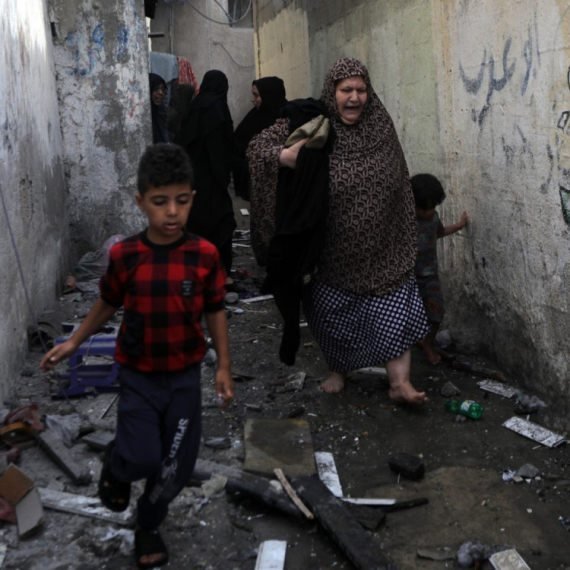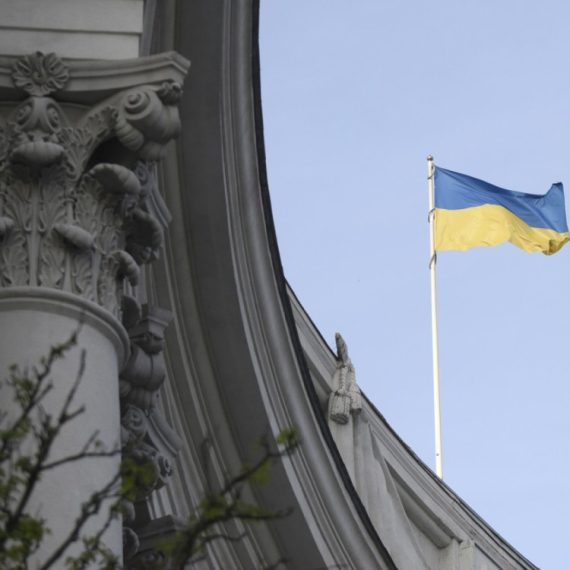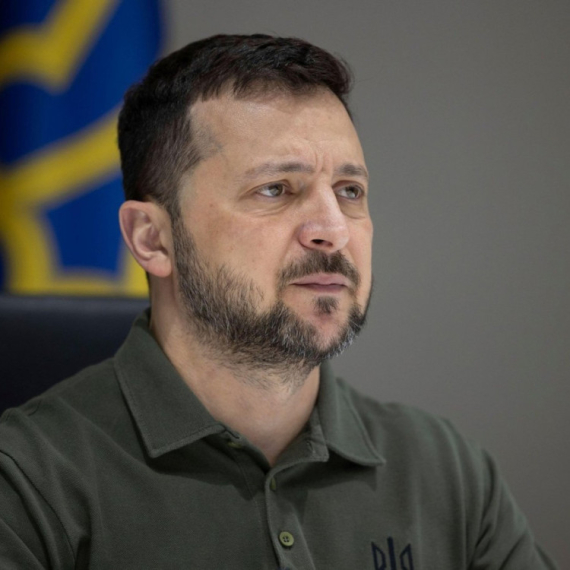"Kosovo makes progress, but has serious issues to address"
In 2013, Priština has made progress in the normalization of relations with Belgrade, but there are serious problems, an EC report said.
Thursday, 17.10.2013.
12:29

BRUSSELS In 2013, Pristina has made progress in the normalization of relations with Belgrade, but there are serious problems, an EC report said. These problems concern the rule of law, fight against corruption and organized crime, and protection of minorities, says the 2013 European Commission (EC) Progress Report for Kosovo. "Kosovo makes progress, but has serious issues to address" The EC “concluded that 2013 has been a historic year for Kosovo on its path to the European Union,” according to the key findings of the progress report on Kosovo - denominated with an obligatory asterisk to say that the designation was "without prejudice to positions on status, and is in line with UNSC 1244 and the ICJ Opinion on the Kosovo Declaration of Independence." In the key findings of the progress report for Kosovo, presented to the European Parliament’s Foreign Affairs Committee by Commissioner for Enlargement and European Neighborhood Policy Stefan Fule on Wednesday, Kosovo was commended for being committed to the EU-facilitated dialogue with Belgrade and reaching the agreement on the normalization of relations in Brussels on April 19. The EC report notes, however, that in the Serb-majority north, certain officials “called for a referendum on the agreement and threatened to boycott its implementation.“ “Pristina’s restraint and inclusive approach, together with the positive role played by Belgrade, have prevented escalation,” says the report. As part of the implementation of the April 19 agreement, “Serbian police stations operating in northern Kosovo were gradually closed,” says the report, adding that “Serbian authorities also ceased the payment of salaries to Kosovo Serb police officers already employed by the Kosovo police in the north.” “Serbian courts and prosecution offices stopped prosecuting and adjudicating criminal cases in Kosovo” and “municipal assemblies in the four northern municipalities were dissolved,” it says. “To meet its obligations under the Stabilisation and Association Agreement, Kosovo needs to implement the legislative and policy frameworks, and provide concrete evidence of results in the fight against corruption,” the European Commision said, adding that the process needs to be monitored. The EC also called on Pristina's authorities to fully cooperate with EULEX, including its special team investigating into allegations about human organ trafficking in Kosovo. In addition, the EC expressed great concern about political interference in the work of the judiciary, stressing that the judicial and prosecutorial councils need to respond decisively to attacks against individuals and the judicial institutions. Appropriate security and protection measures for judges, prosecutors and other judicial staff need to be ensured and “Kosovo still needs to do more to mitigate the risks of indirect forms of intimidation or influence on staff in the judiciary and on witnesses,” and “needs to increase the proportional representation of minorities in the police and judiciary.” The Commission expressed concern about shortcomings in the protection of minorities, especially the Roma, Egyptian and Ashkali communities, who are in a very difficult situation. The Pristina authorities came in for a lot of criticism concerning the LGBTI community, as it continues to face discrimination, threats and violence in Kosovo. The report says “violent incidents against the LGBTI community need to be investigated and prosecuted.” The European Commission also urged Pristina to investigate into physical attacks on journalists. Tanjug
"Kosovo makes progress, but has serious issues to address"
The EC “concluded that 2013 has been a historic year for Kosovo on its path to the European Union,” according to the key findings of the progress report on Kosovo - denominated with an obligatory asterisk to say that the designation was "without prejudice to positions on status, and is in line with UNSC 1244 and the ICJ Opinion on the Kosovo Declaration of Independence."In the key findings of the progress report for Kosovo, presented to the European Parliament’s Foreign Affairs Committee by Commissioner for Enlargement and European Neighborhood Policy Stefan Fule on Wednesday, Kosovo was commended for being committed to the EU-facilitated dialogue with Belgrade and reaching the agreement on the normalization of relations in Brussels on April 19.
The EC report notes, however, that in the Serb-majority north, certain officials “called for a referendum on the agreement and threatened to boycott its implementation.“
“Priština’s restraint and inclusive approach, together with the positive role played by Belgrade, have prevented escalation,” says the report.
As part of the implementation of the April 19 agreement, “Serbian police stations operating in northern Kosovo were gradually closed,” says the report, adding that “Serbian authorities also ceased the payment of salaries to Kosovo Serb police officers already employed by the Kosovo police in the north.”
“Serbian courts and prosecution offices stopped prosecuting and adjudicating criminal cases in Kosovo” and “municipal assemblies in the four northern municipalities were dissolved,” it says.
“To meet its obligations under the Stabilisation and Association Agreement, Kosovo needs to implement the legislative and policy frameworks, and provide concrete evidence of results in the fight against corruption,” the European Commision said, adding that the process needs to be monitored.
The EC also called on Priština's authorities to fully cooperate with EULEX, including its special team investigating into allegations about human organ trafficking in Kosovo.
In addition, the EC expressed great concern about political interference in the work of the judiciary, stressing that the judicial and prosecutorial councils need to respond decisively to attacks against individuals and the judicial institutions.
Appropriate security and protection measures for judges, prosecutors and other judicial staff need to be ensured and “Kosovo still needs to do more to mitigate the risks of indirect forms of intimidation or influence on staff in the judiciary and on witnesses,” and “needs to increase the proportional representation of minorities in the police and judiciary.”
The Commission expressed concern about shortcomings in the protection of minorities, especially the Roma, Egyptian and Ashkali communities, who are in a very difficult situation.
The Priština authorities came in for a lot of criticism concerning the LGBTI community, as it continues to face discrimination, threats and violence in Kosovo. The report says “violent incidents against the LGBTI community need to be investigated and prosecuted.”
The European Commission also urged Priština to investigate into physical attacks on journalists.





















































Komentari 35
Pogledaj komentare